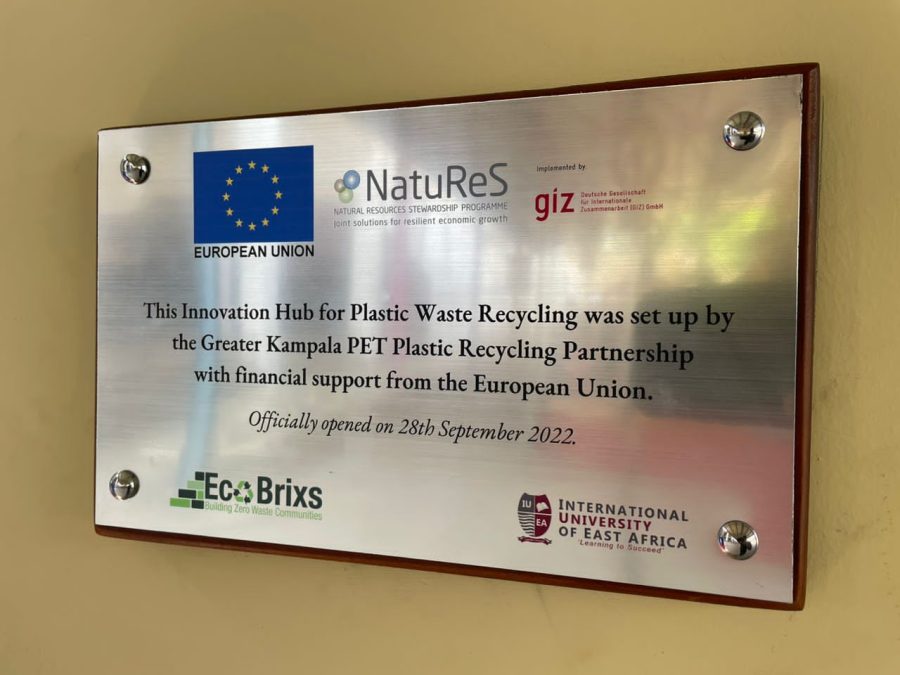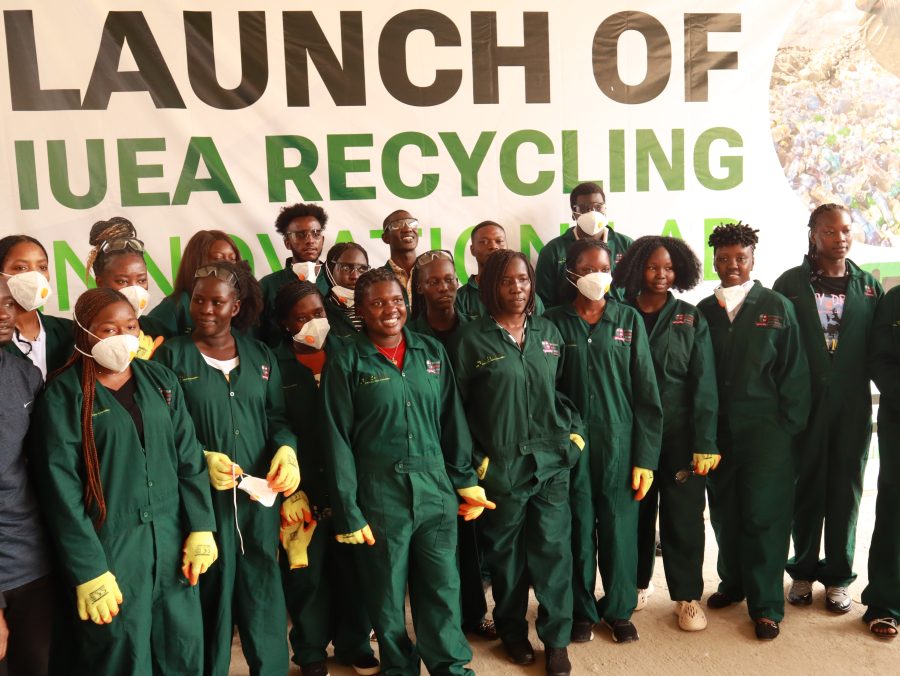Launch of Innovation Hub for transformative plastic waste recycling and job creation in Uganda
To promote resource efficiency and protect the integrity of natural resources, a shift to a circular economy in which products are reused and recycled instead of being wasted, is crucial. Therefore, an innovation hub for plastic recycling has been launched on 28th September 2022 at the International University of East Africa (IUEA) under the framework ofthe Greater Kampala Metropolitan Area PET Plastic Recycling Partnership. The multi-stakeholder partnership supported by NatuReS strives to improve the sustainable management of PET plastic in GKMA by developing an inclusive green recycling sector.

The Innovation Hub is a collaboration between IUEA, EcoBrixs, a Ugandan social enterprise working on plastic recycling, and NatuReS. EcoBrixs buys plastic from waste collectors, which it then recycles into a variety of new products such as bricks, pavers, fence posts or face shields.
Aware of the environmental impact of plastic waste and the importance of recycling in preserving natural resources, partners also recognize recycling as an opportunity to boost the local economy through employment and the production of other useful products. The hub aims to form a generation of empowered and skilled young Ugandans, capable of tackling Uganda’s plastic waste management challenges innovatively and collectively.
Therefore, the hub creates a space for plastic waste reduction through triggering and supporting recycling innovations. IUEA students will be the trainees, benefiting from the opportunity to explore and learn practical techniques in recycling from plastic waste recycling experts. EcoBrixs will, for example, provide the hub with the necessary know-how, skills and trainers.
Training the youth for innovative green jobs
However, the plastic recycling innovation hub will even go a step further and contribute to addressing some of Uganda’s youth employment challenges. The trainees will additionally gain employment and entrepreneurial skills. This will assist them in using and creating employment opportunities in Uganda’s recycling sector, which represents a goldmine of untapped possibilities. In fact, Uganda generates 600 tons of plastics waste daily according to the National Environment Management Authority (NEMA). This waste is currently handled by just over 30 registered recycling companies, working on a very small scale due to technical and resource constraints as revealed by the Global Green Growth Institute’s “Kampala solid waste value chain mapping” report. These figures demonstrate a huge potential for further recycling and opportunities for recycling startups to thrive.

By fostering a green jobs education approach that focuses on supporting circular economy initiatives, the Innovation hub will thus encourage the students to pursue green jobs and better manage plastic waste, building a workforce for a sustainable and inclusive future. This is aligned with the Sustainable Development Goals (SDG) 12, which focuses on environmentally sound waste management through prevention, reduction, recycling, and reuse, as well as SDG 8, seeking sustained, inclusive economic growth and decent work for all. The Hub further contributes to Uganda’s green Jobs Programme, which aims at creating green and decent jobs to enhance labour productivity and reduce poverty through the promotion of innovative skills development and the enhancement of productivity and competitiveness of workers and enterprises.
The hub is expected to result in the following annual outcomes:
- 300 students trained in plastic recycling annually.
- Through research and development of joint ventures with trainees, two prototype products are developed from plastic waste and brought to market per graduating year.
- After graduation, 80% of trainees find employment in waste management and recycling.
- At least 60 tons (5 tons per month) of plastic waste are recycled sustainably.
The Hub training modules have been integrated into the university’s curriculum. This, as well as partner commitments, will ensure the hub’s long-term viability and sustained outcomes.
To stay up to date, also subscribe to our newsletter or follow us on Twitter!
Author: Simon Akena, GIZ-NatuReS Uganda